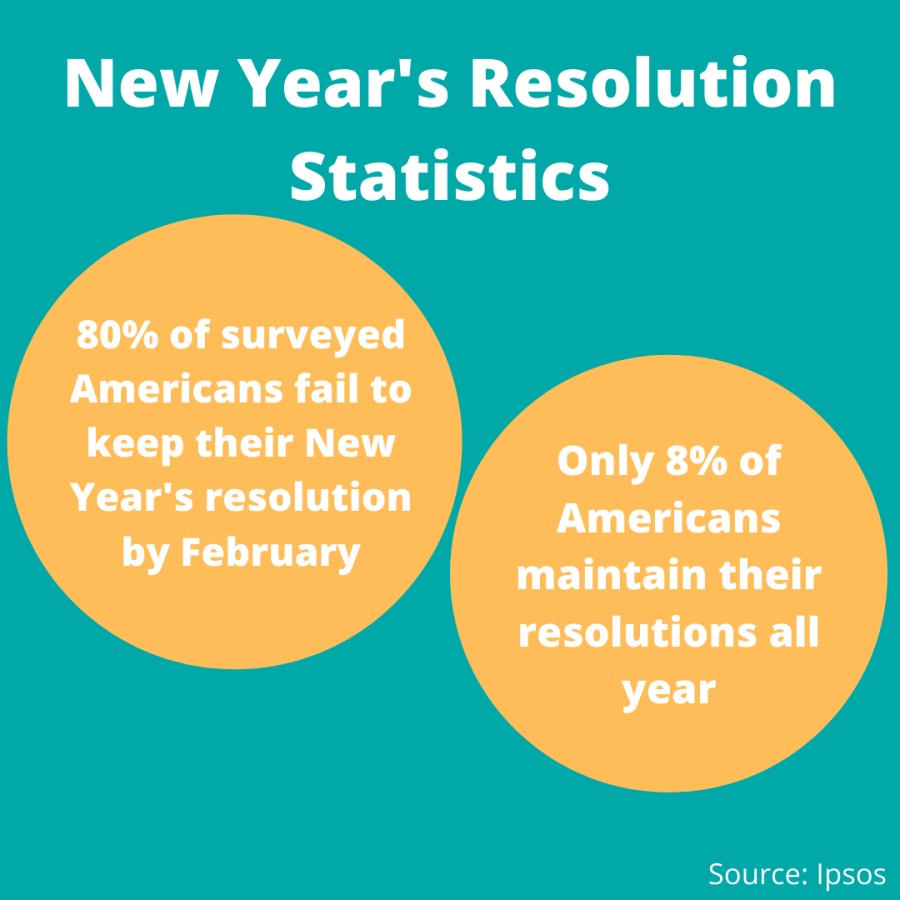Each new year brings with it the opportunity to start fresh. Some minimalists just change the batteries in their smoke detectors and get new calendars. Others begin new resolutions and goals to live by in the new year. And while New Year’s Day wraps up the holiday season, it launches people across the world into a new year, full of new opportunities.
A new year allows for a clean slate. Whether it’s travel or trying to live healthier, often times people set “resolutions” that they try to hold themselves to. The phrase “new year, new me” has become even more common with each new year. But, whether this phrase refers to the formation of an actual brand new identity or just the betterment of one’s true self is up to interpretation.
On the more common side of resolutions is implementing a healthier life style. For Courtney McMahon, a senior in the College of Business Administration, her resolutions start on a smaller scale with the simple task of trying to drink more water. “I don’t think new year new me is possible because it’s hard to completely shift your lifestyle,” McMahon said. “I think a more achievable way of doing it is to work towards a goal for the entire year to better yourself.”
But living a healthier lifestyle means something different to everyone, and according to Sofie Manglano, a freshman in the College of Nursing, being healthy is about more than just diet. Manglano has a variety of resolutions that she is working toward, beginning with standing up straight and maintaining good posture and ending with being more productive overall. She explained that she is taking later classes this semester and wishes to seize the free time that she has, using her once-empty morning hours to work out and do homework or laundry.
Manglano said that she has been trying to adjust her lifestyle since being at school and so the New Year is the perfect time to really push herself. She also wishes to get out of her comfort zone by trying new things and getting involved in activities that allow her to feel like the best version of herself.
“I totally dig New Year’s resolutions,” Manglano said. “Even though I think it’s good to challenge yourself and think about how you can better yourself at any time of the year, I think it can be really helpful for some people to start on a clean slate, being the New Year.”
Manglano makes a good point, as there is truly nothing stopping people from bettering themselves on any given day of the year. Yet there must be something about having a new number at the end of the four-digit year that makes the vast majority of people feel like they can be better.
Contrary to the hype surrounding “new year, new me,” Brian McTague, a freshman in the College of Business Administration, had a more dismissive opinion on resolutions and redefining oneself.
“New Year’s resolutions are so daunting because you have to commit yourself to a goal for an entire year,” McTague said. “I think it’s a lot more useful to set goals for a shorter period of time because that feels more attainable.”
Many people agree that smaller strides are the key to successful resolutions, and that perhaps they should be done away with altogether. However, with an established place in New Years culture, resolutions and promises of “new year, new me” will likely be made and broken for years to come.







